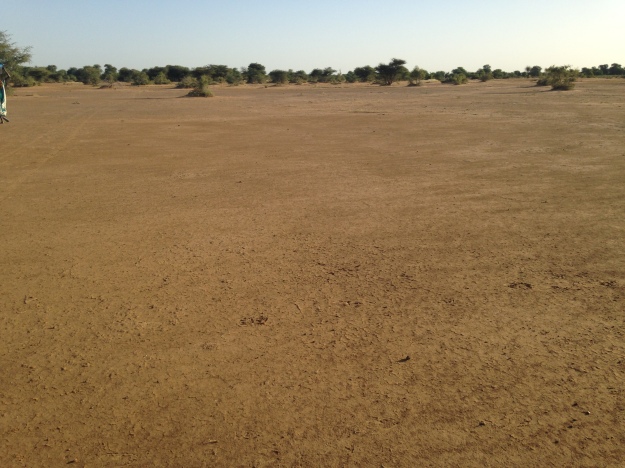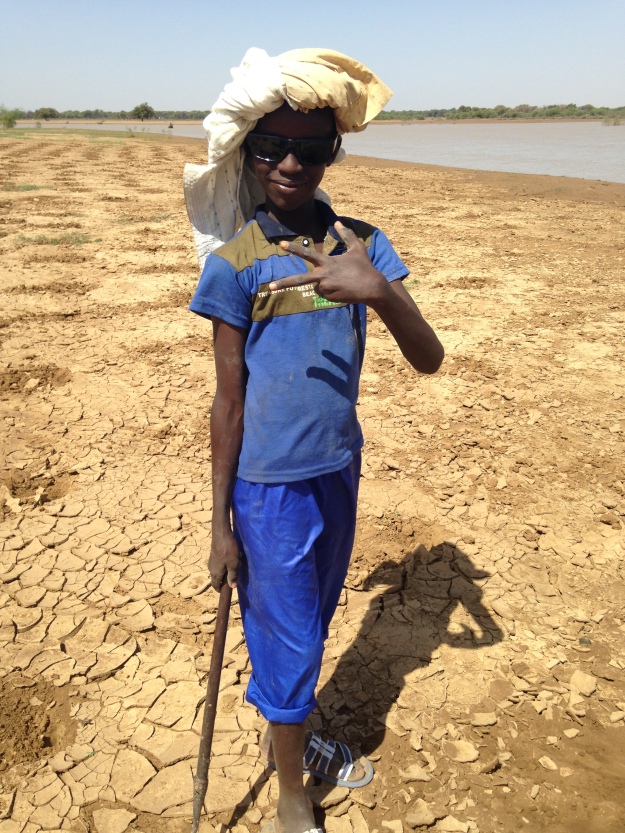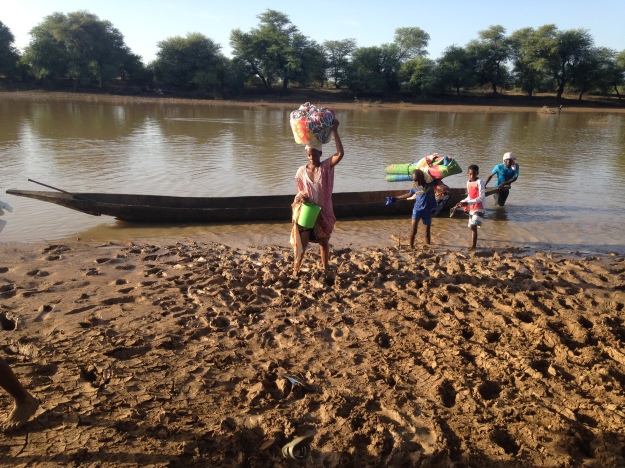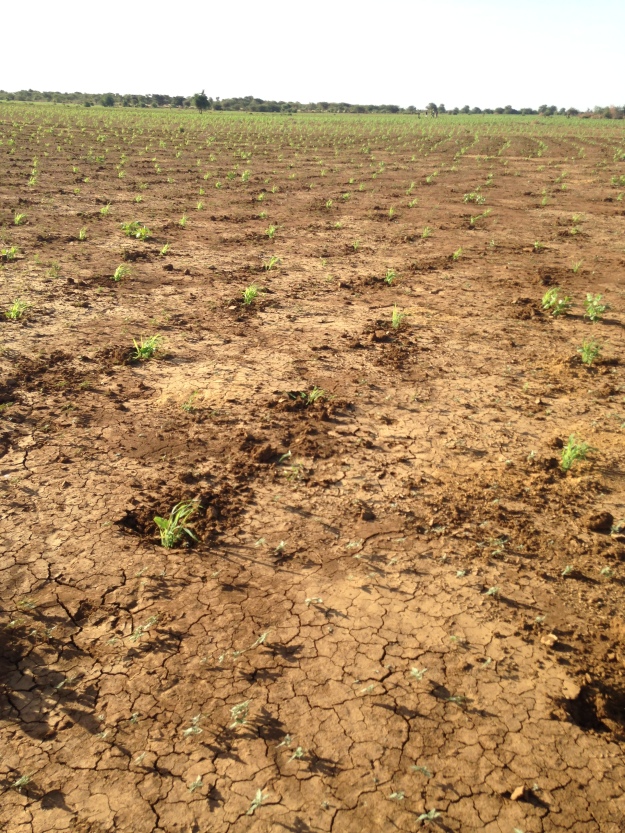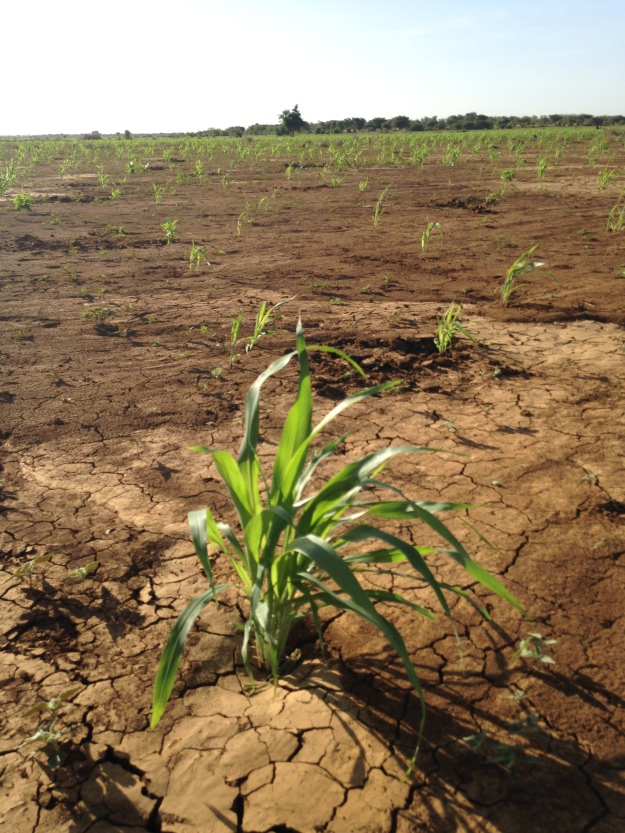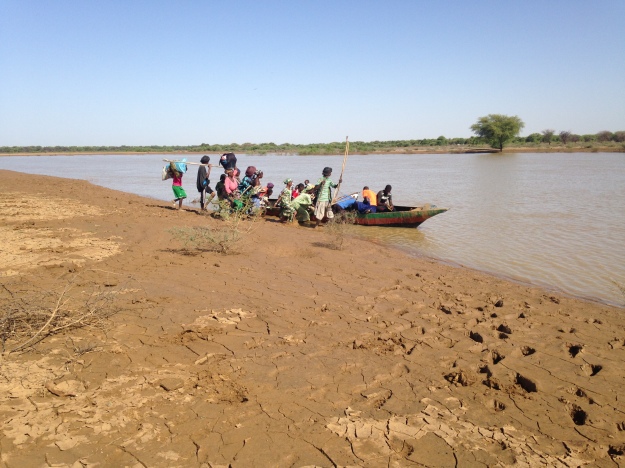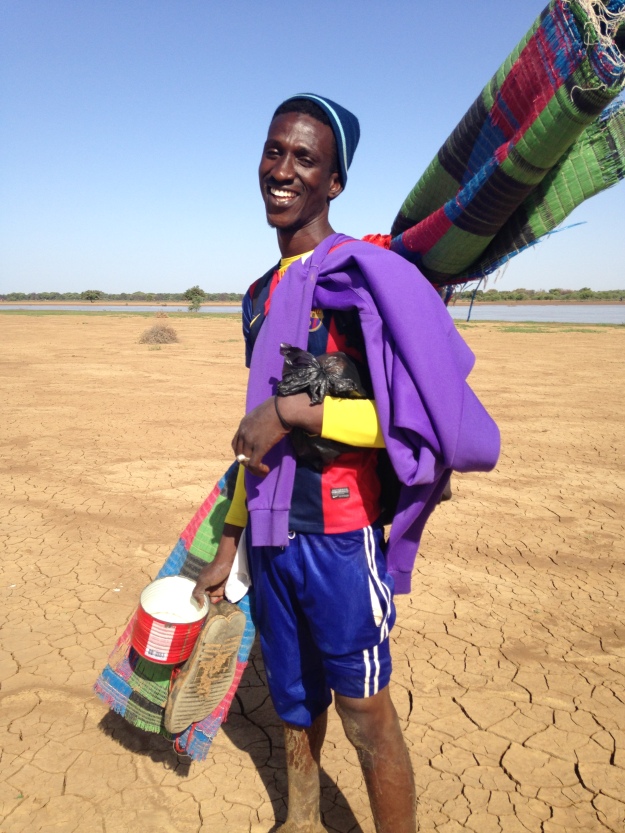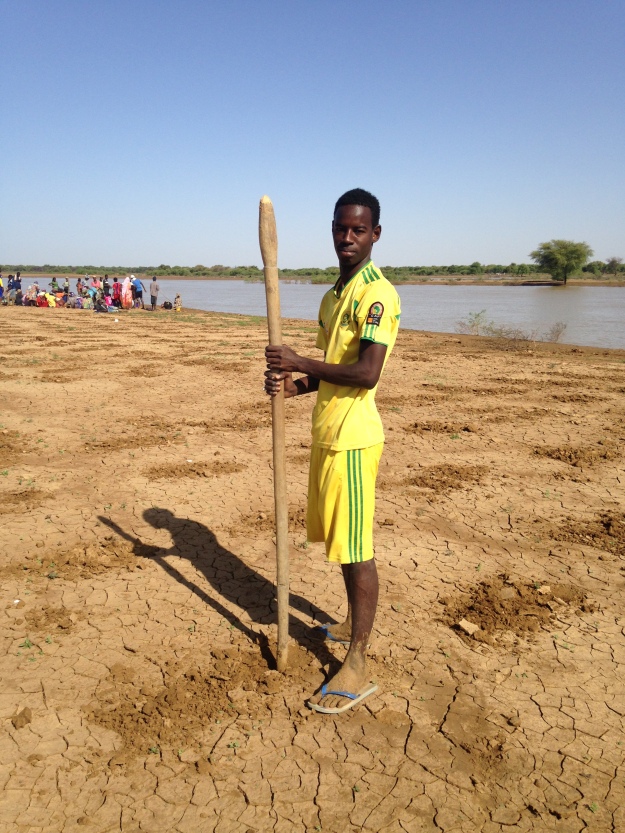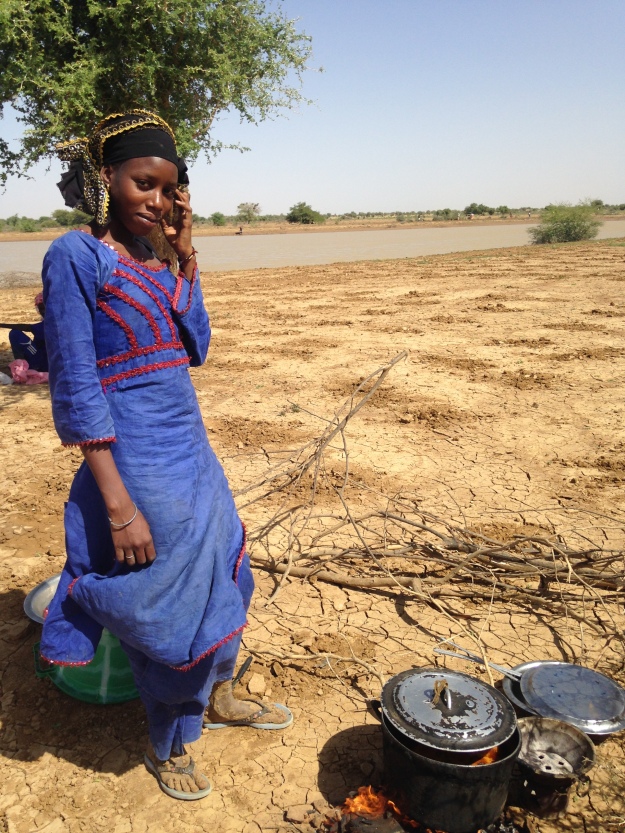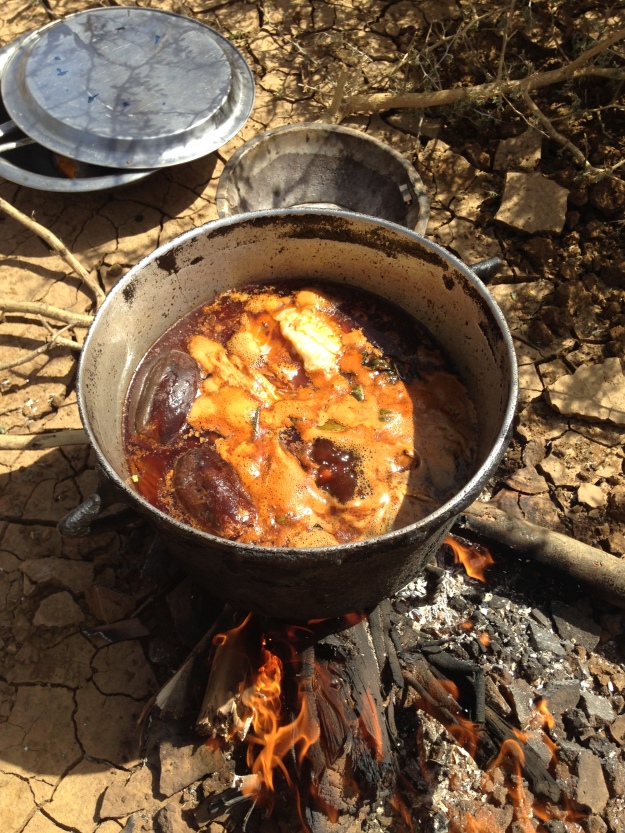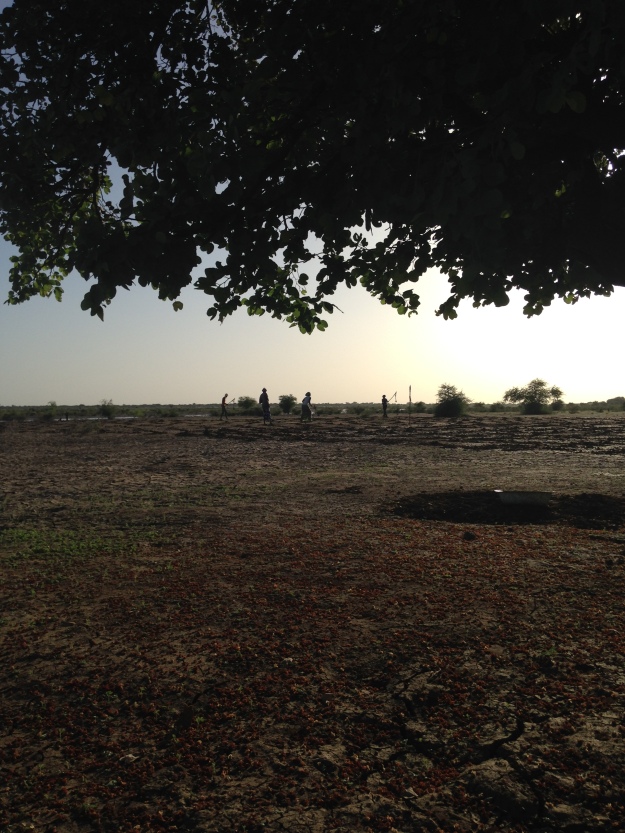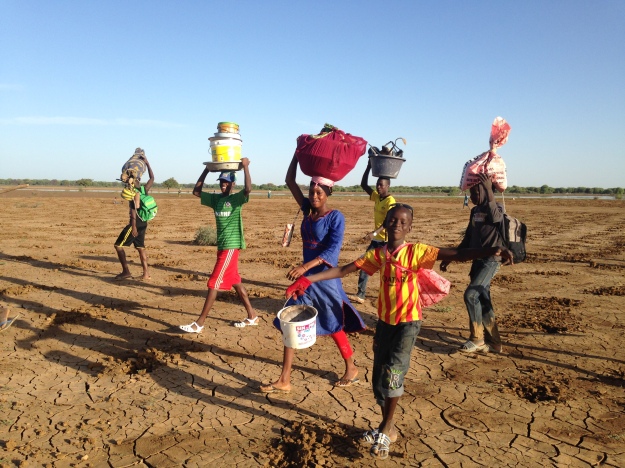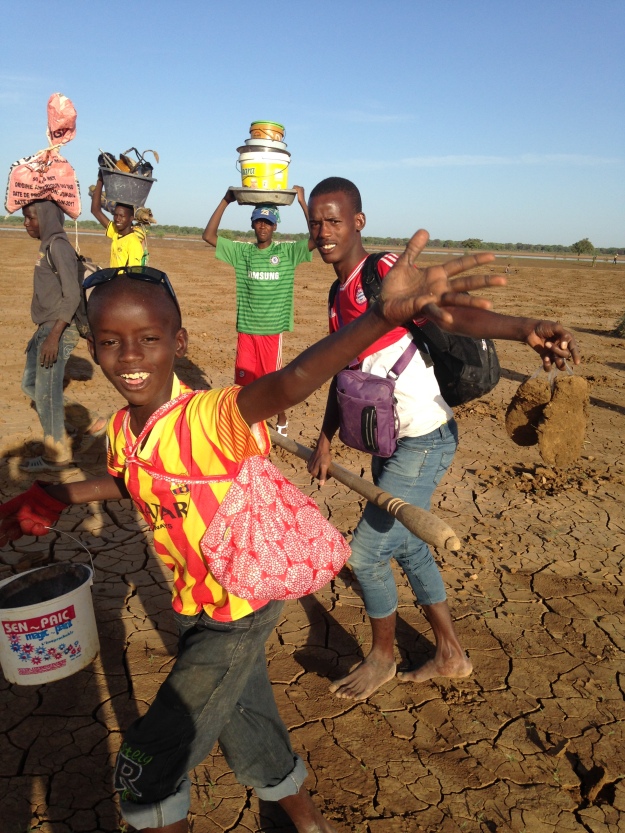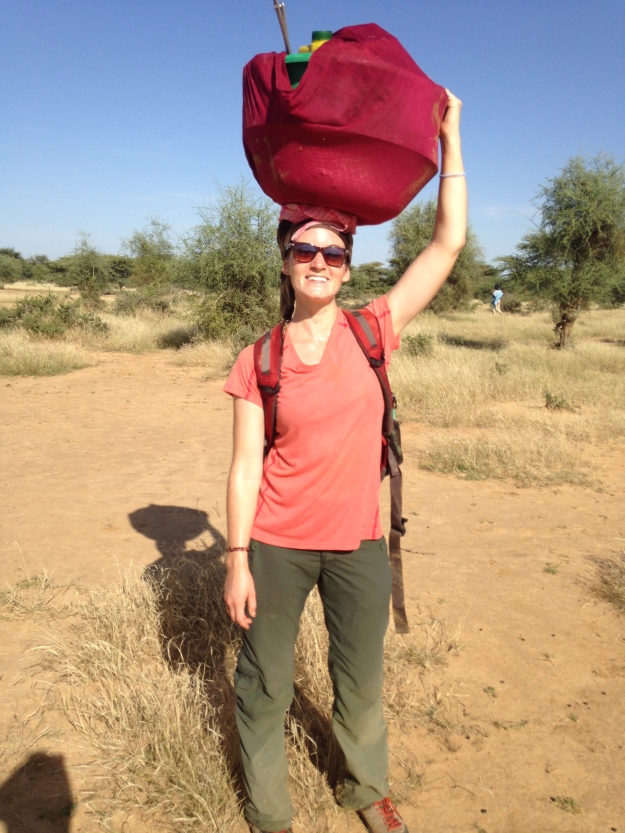The Dakar-Fuuta Bus

Busses run from Dakar to Ourossogui along the Fuuta route all day every day. Most leave their starting points at 4am
The alarm goes off, a chanting/singing noise. Abou rolls over, grabbing his phone and turning off the alarm. He checks the time – 4am. His brother has already left, his bus leaving Sedo around 3am. He is long gone. Abou turns on the light, his wife already awake from the alarm, she rolls over on her mattress on the floor, careful not to wake her week old baby. They must not sleep in the same bed together because she has so recently given birth. This is how it is. He steps outside to wash his face, hands, and feet before praying. Changing his pants and adding a light jacket, he gathers his overnight bag and cell phone, kissing his wife, who is now sitting up, back resting against the foot of the wooden bed frame, gently on her cheek.

Abou and his wife Mettu, dressed up on a Friday afternoon

Mettu and her baby at the naming ceremony one week after his birth. This is their third boy

Mettu and her baby at the naming ceremony one week after his birth. This is their third boy
Using his cell phone’s weak flashlight, he heads down the dark hallway and out the front door. He walks around the block to where his and his brother’s busses sit, now only his left glowering hauntingly in the dark of the early morning. A streetlight a few blocks away casts strange shadows through the electrical lines and tree branches. There is some movement around his bus as he walks towards it; his apprentices have beaten him to the bus. Front door open, they begin to turn on the bus, its ignition struggling as it chugs and spurts to life. Two people arrive from the shadows of the village, huddled in scarves, one carrying a baby, the other, their baggage. Quick greetings are exchanged and they board the bus, choosing seats close to the front, the one with the baby leans her head against the window and closes her eyes, the other fingers her prayer beads, mumbling silent prayers. 5:10am and no one else seems to be showing up, Abou boards the bus and starts shifting it into gear, the bus rumbling. The apprentices board the bus through the front and back door, taking seats wherever they feel. The bus rolls sleepily out of the narrow winding sand alleyways of the village and through the desert emptiness until they come to the main road. The bus slows to mount the concrete road, raised a bit from the sand. The bus leans dangerously to one side as the bus aims diagonally onto the road, no other cars around for miles. Abou shifts it into gear and off they race, towards Dakar… a whole day’s trip away.
The bus charges forward between villages, but most villages result in stops- people flagging down the bus. No way to know which extended arm wants to flag the bus to take all the way to Dakar or instead just to the next village, which results in many stops and the apprentices yelling out the doors to the waiting crowds, “Fo jemm?/To paa daa?” (Where are you going – Wolof/Pulaar) The waiting party proceeds to yell towards the bus as it may or may not proceed to a stop, sometimes speeding right back up again without even correctly hearing where the person was going. When a stop is made for someone possibly traveling farther than the next village over, the bus slows and the apprentices jump out of the front and back doors, jogging along side the bus towards the waiting party. They confirm where they are headed and whether or not they have baggage. Fares are shouted back and forth until one gives in and stops arguing. The luggage, if large, is then shuffled, hand-over-hand, to the apprentice waiting on top. It is settled in among other packages, rice sacks of dried fish, goats with their legs all lashed together, a sheep packed completely into a rice sack, braying depletedly.

Windshield of a mini car, not Abou’s bus, but similar issue here
Inside the bus, there are curtains on almost every window, held by rope lining the windows. These curtains flow in the breeze as the bus flies along the bumpy road, one passenger ties the curtains into balls so as to stop them from batting him in the face as he leans his head against the window, trying to sleep. Posters of Chiernos (Imams – religious teachers of the Koraan) are taped up to the plastic barrier behind the driver’s seat and the beginning of passenger seating. Faces of large men with long chains around their necks – photos of other large men hanging on them, the posters bordered with decals, photoshopped with backgrounds of multiple famous mosques (all in different countries) or computerized beach scenes. Next to the posters hangs a plastic hand-woven loofah, a small bar of soap lodged inside – just in case the opportunity to bathe presents itself along the way. No one should ever be caught without their soap and loofah. On the stick shift hangs an old tiny beat-up baby shoe for good luck; wiggling every so slightly every time Abou shifts into second gear. The bus hits a pothole on the right side and the automatic door engages- just one half – opening as if triggered. The apprentice standing in the doorway shoves it closed again, but instead triggers the other half door which then springs to life, almost smacking him in the face. The bus tilts back the other way and that door too then slams back into place. Through the ‘automatic’ doors, you can just barely see the rear-view mirror, which is lashed onto it’s post with red twine, facing exactly the opposite direction. But it’s on, at least. There is no real need for that mirror, however, for that is why Abou has so many apprentices – standing in the doorways, ready with the tap of their silver ring against the metal siding and shouts of ‘Hey! Eh! Eh!’ to communicate when to stop or go to Abou. The front window just barely being held together by clear packaging tape. A sound, which had been first interpreted as electronic squeaking or creaking of the structure or gears of the bus itself has been emerging instead of from below the bus, but from above the heads of the passengers. 4 crates, with small holes along the sides sit on the left luggage rack inside the bus. The movement inside them becomes evident, the noise not letting up when the bus stops – birds! The sound of their chirping sounding astoundingly similar to the electronic sound emitted underground of the San Francisco cable car. Prayer beads and a pair of sunglasses dangle from inside the central rear view mirror – this one quite functional.
Stop in Oro Fonde for the morning prayer. Stop in Aire Lao for lunch. Pulling into the gas station, Abou rolls slowly waiting for the worker to signal to him which station is functional. The worker doesn’t gesture right or left because, as he soon finds out, the electricity is out. The worker goes inside, picks up a yellow oil bidon and comes out, grabbing a half cut off 1.5 liter soda bottle with a piece of hose attached and walks towards the bus. Never turning off the engine, the oil is emptied into the tank, money exchanged, and the bus is back on the road. Stop in Richard Toll for the afternoon prayer. Arrive to Dakar around sunset, just in time for the sunset prayer. Dakar, being so large, people are let off long before the garage, leaving only a few left in the empty seats upon arrival to the garage. The apprentices unload what’s left of the baggage and people, sweeping out the trash on the floor. The bus, now devoid of people, looks like a bomb has gone off in it – trash strewn all about the floor, a layer of dirt, grime, grease, and plastic water sachets stuck to the ground amidst mandarin peels, banana peels – already black, a child’s shoe left behind, half a bag of peanuts spilling on the floor, sticky plastic bags that had held popsicles, etc. The apprentices sweep what they can, the layer of grime left to collect whatever passes over them.

Dashboard of a car
Abou picks a few seats, sprawls across them, and takes a nap. The apprentices all do the same; the hustle and bustle of the garage not phasing them in the slightest. Dinner, hanging out, catching up with friends, drinking ataaya commence at a nearby house – relatives of Abou. They stay up late into the night, drinking shot glass after shot glass of ataaya, people coming and going. After a few hours of sleep, 4am alarm goes off and Abou and his crew shuffle through the streetlight glow back to the bus in the outskirts of the garage. Dakar, surprisingly busy at all hours, is alive, movement in the darkness resembles ghostly dream creatures sneaking around quietly behind walls, around steel canisters, walking in and out of doorways, shrouded in shadows.
People wait under the huge cement shade structure on the bench aligned between two bus spaces. Money is exchanged, tickets are ripped off, change exchanged, and a percentage haggled and given to the garage workers. Travel in Senegal is mostly about the liquidity of money. Money comes from the passengers, is then passed to the garage attendants, some given to each apprentice, filling up the gas tank a few liters at a time, some given to beggars and Talibe boys (young boys who study the Koraan and beg as a form of humility) and some used to buy food and water along the way. At the end of the day, not much money is made by anyone, but everyone involved in the process gets a share.

Leaving the garage, the next bus rolls into place
The bus takes off again, this time not entirely full, but baggage piled on top as high as the bus is tall. The 4 apprentices now all take up the entire front row, one of them sleeping across two seats, whole body swaddled in his thick coat. They roll through the darkness on their way back up to the Fuuta – back to Sedo, back to his wife, back to his newborn child, back to his other two sons, all just a day’s drive away, and yet on the other side of the country.


Abou and I at the naming ceremony of his newborn son. His village only speaks Wolof so it sucks going there… Good thing he’s worth visiting
